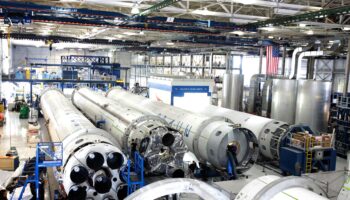Introduction:
As Artificial Intelligence (AI) propels us toward a future brimming with transformative possibilities, it also unfurls a tapestry of intricate ethical dilemmas that require profound contemplation. The intersection of AI with our lives, industries, and societies beckons us to grapple with questions that transcend technological advancements and delve into the very essence of what it means to be human. Here, we explore six significant ethical questions that cast a compelling light on the future of AI.
Autonomy and Accountability: Who is Responsible?
AI’s autonomy raises a pressing query: Who bears responsibility when AI systems make decisions or take actions? The absence of human intent complicates matters, as AI operates based on algorithms and data. Navigating the fine line between accountability and technological determinism demands a nuanced understanding of how to hold both AI developers and users responsible for the outcomes of AI-enabled choices.
Bias and Fairness: Can AI Be Impartial?
The specter of bias looms large as AI learns from human-generated data. Can AI truly be impartial when its training data reflects existing societal biases? The challenge lies in ensuring that AI systems do not perpetuate or amplify prejudices. Striving for fairness necessitates continuous vigilance, transparent algorithms, and comprehensive data curation to mitigate biases and promote equitable outcomes.
Privacy and Surveillance: Where Do We Draw the Line?
AI’s data-driven prowess fuels concerns about privacy and surveillance. The trade-off between personalized services and intrusion into personal lives prompts us to grapple with defining the boundaries of acceptable data collection and utilization. Striking the right balance between convenience and safeguarding individual liberties becomes a pivotal ethical question as AI penetrates various facets of society.
Job Disruption and Unemployment: What About Human Workers?
The rise of AI automation presents a paradox: while it enhances efficiency and productivity, it also threatens to displace human workers across industries. Addressing the ethical dimension of job disruption entails reimagining work, reskilling the workforce, and cultivating a social safety net that ensures equitable transitions for those whose livelihoods are disrupted by technological advancements.
Existential Risks: Can AI Be Controlled?
The realm of AI extends beyond everyday concerns to existential risks. As AI systems grow more sophisticated, concerns about their potential to surpass human intelligence and goals arise. Contemplating the ethical implications of superintelligent AI involves crafting safeguards, ensuring human control, and foreseeing potential outcomes that safeguard humanity’s long-term well-being.
Human Identity and Creativity: What Makes Us Unique?
AI’s ability to replicate creative tasks blurs the line between human and machine creativity. As AI generates art, music, and literature, we question the essence of human identity and our unique creative spirit. Exploring the ethical implications of AI-driven creativity prompts us to reflect on the intrinsic qualities that define our humanity and the potential consequences of delegating creativity to machines.
Conclusion:
The journey into the future of AI is not only a technological voyage but an ethical odyssey. The profound questions that AI raises about accountability, bias, privacy, jobs, risks, and human identity underscore the need for an inclusive, multidisciplinary dialogue that guides the responsible development and deployment of AI technologies. As we navigate this uncharted terrain, the ethical compass we cultivate will shape the contours of the AI-powered future, influencing the course of humanity’s narrative in profound and unprecedented ways.
- THE EVOLUTION OF PLASTIC SURGERY - 17 June 2024
- CHOOSE THE RIGHT PERSONAL INJURY LAW FIRM IN CHARLOTTE NORTH CAROLINA - 16 June 2024
- Email UX optimization, offering actionable insights - 16 June 2024






2 Comments